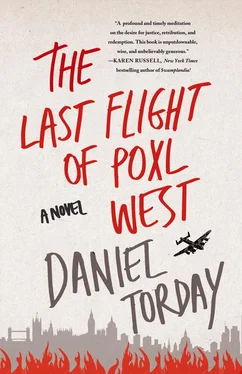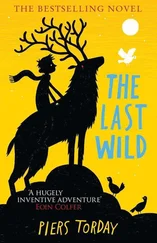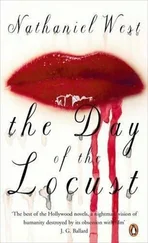It wasn’t lost on any one of us that part of our mission was not to kill Nazis this time. It was to kill Germans, Nazis or otherwise.
Wing Commander Pennington turned to a map detailing our flight path from the aerodrome deep into German airspace. We would be going deep enough that we couldn’t alter our direction — Manchesters flying with us, with smaller fuel tanks than the Lancasters’, would continue on all the way to North Africa — and the approach would place us not over Cuxhaven, but over the Kiel Canal and Lübeck, both of which were notorious for the intensity of Luftwaffe aerodromes, which sent up hundreds of fighters each time they spotted us.
“No way we’ll get past all those Me110’s,” Navigator Smith said.
Wing Commander Pennington assured Smith and the rest of us that there was something new awaiting the Luftwaffe that night to protect us.
We had a temporary second pilot on this flight, along to observe before taking over his own bomber. He turned out to be an acquaintance of Gallsworthy from his Initial Training Wing, a Liverpudlian called Rowlandson. He was charged with loading S-Sugar with this new weapon we were to use against the Germans. After our briefing he and Gallsworthy, who as the bomb aimer would deliver our secret weapon, went off to discuss it.
I went back to our Nissen hut, where I shaved once again. While I was shaving, Navigator Smith came into the latrine. I hesitated for a moment, but it was too late to turn around to leave. I was shirtless, and I still had a large gauze bandage on my right shoulder protecting my wound. Smith looked up and saw the patch. He didn’t acknowledge me.
I harbored some hope he might provide me a bit of a wider berth given that there were just the two of us. No matter how acerbic a man might be, it has been my experience that if one finds himself alone with him, just two men without any further audience, an interaction might grow easier.
Navigator Smith proved an exception to this rule.
I wondered aloud if there hadn’t been some concern among our crew that we would be dropping bombs not just on selected targets in Hamburg, but that we would be bombing the city as a whole.
“What of it,” Smith said.
“We would be killing civilians,” I said. “We might be knowingly killing civilians.”
“What do you know of killing civilians?”
I told him that before arriving in London I’d lived for a year in Rotterdam, and the people there I knew had most likely been killed by Luftwaffe bombs.
Now Smith just looked at me.
“So that’s your girl you were talking about?”
I tried to explain that I’d been meaning to speak of a Briton named Glynnis, to whom I’d briefly been engaged and who’d died in central London. Instead, though I’d not meant it, I’d referred to a woman I’d known in a Dutch brothel.
“I don’t need your whole damn family tree. I’ll just tell you the same thing I told you last time,” Smith said. “We’re here to drop bombs on the heads of some Nazi bastards. This is total war. Look — you’re going to have to adopt a press-on attitude, Pilsudski. That’s your mantra from here on out: Press. On. Regardless. Isn’t it what you’re here for?”
I didn’t respond.
“Let me pose a question, then,” Smith said. “You think your pain for this Glynnis or Françoise or whatever is so unique. What makes you think all the boys in our squadron haven’t lost girls of their own? Aren’t thinking about their girls back in London?”
Navigator Smith wiped his face of shaving cream. He studied himself in the mirror. I thought to say something more, but there was nothing more to say. I’d lost Glynnis to the Luftwaffe attack. I’d left Rotterdam. I’d left Niny and Johana, and Johana had lost her paramour and most likely her husband, and my parents had been taken from their home. And I’d lost Françoise, left her thinking only of what it meant to me — never what it meant to her. I could still hardly conceive of what she’d thought I’d done.
In those moments with Navigator Smith, there wasn’t anything to explain, nothing to talk about. He left the latrine.
I donned my RAF deep blues and dressed in layer after layer now that I knew intimately the cold of thirty thousand feet. My crew convened on the airstrip near S-Sugar at 1800 hours to await the call for takeoff. Gallsworthy had conferred upon himself a kill for one of the Messerschmitts that went down over Cuxhaven. He was only now painting a swastika on the side of our Lancaster by way of commemoration. I asked after the secret weapon the wing commander had mentioned at the briefing.
Gallsworthy showed me a dozen large paper-covered packages sitting below the waist of the plane. Rowlandson had left them there to be loaded. He would drop these packages as we entered German airspace. Neither he nor any of us knew then how it was to work, but the effect of the dropping of these packages was meant to clear our flight path. Gallsworthy paused in his painting and picked up a package. He turned it over in his hand, as skeptical as I was that a paper-covered package would effect much of anything in the midst of that “total war.”
The aerodrome was a din of engines starting, flight engineers checking bombers. The sun was moving ever closer to a dense stand of trees in the western sky that brought to mind my first trip to the cave with Glynnis. Water had been lying still in the fields then. Though we hadn’t seen much damage, the first time a huge brown crater revealed itself out there, Glynnis had gasped. I hadn’t realized I was clenching my fists until I heard her. We’d both grown so accustomed to the ruin of buildings all across London. But seeing earth torn up like that — no human harmed, no building destroyed; no real danger, only the ability of a two-ton bomb to move solid grass-covered earth — had some new effect on us.
I just said, “Navigator Smith was after me again.”
Gallsworthy suggested I begin keeping clear of Smith — I was providing him too much ammunition with which to antagonize me.
“These are nineteen- and twenty-year-old men you’re talking to,” Gallsworthy said. “Boys like you, but who haven’t been through what you have.”
Just then word came from Wing Commander Pennington: Cloud cover over Germany was too dense. We were a scrub yet again.
That night there was an NAAFI dance downriver at Grimsby. While the rest of the crew went out I hoped to give the night over to a long letter to Niny. But Iago that he was, Navigator Smith knew the business of roiling emotions well. I stayed in our Nissen hut and spent the night instead writing a posthumous letter to my mother. I wrote her of the Tiger Moths and the vacuous chill of the air at thirty thousand feet, where nightly now we flew to drop huge bombs on the very villains who had sent her to her death, and to move ourselves ever closer to the heaven where she now resided.
I wrote and wrote and wrote.
I wrote her things I couldn’t quite admit aloud to anyone but her: I’d never made it back to see Glynnis, and I’d never told Glynnis about my mother’s death. The weight of that guilt, knowing she was now dead. Even when she and I were quietly making love I would sometimes close my eyes and think of Françoise. That anger had sent me fleeing from Rotterdam when I honestly still to this very day didn’t know that I’d wanted to leave Françoise — but I had, and now I didn’t know her fate. And now I’d begun to picture myself there, to imagine what half-bombed Rotterdam looked like and what I, Poxl, as a villain looked like to the woman I’d left without a word of my leaving. Somehow I felt that if anyone would understand this unnamable emotion it was my mother. I told her how many times I’d wished I hadn’t walked out of our house without saying good-bye to her, too, the first of my flights beginning that moment I left her home, the one that imbued my muscles with the memory of leaving that allowed me to depart Rotterdam, and that I never truly thought I wouldn’t get another chance, how I wished I could see her. How I wished I could see her. How I would always for the rest of my life have wished I could see her again.
Читать дальше












